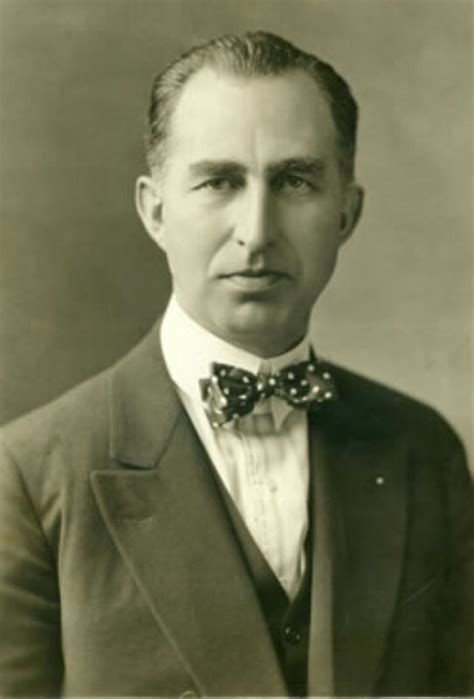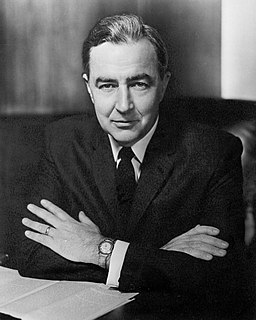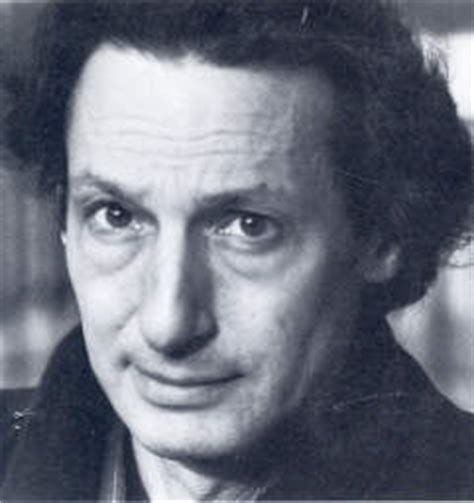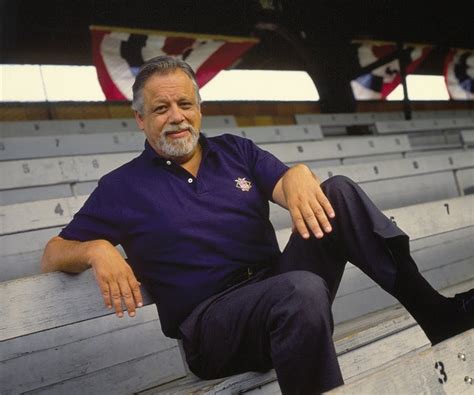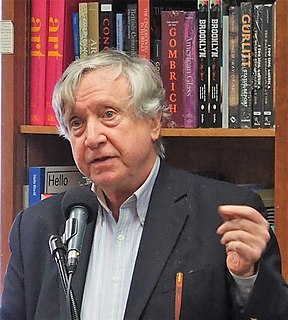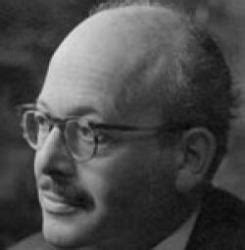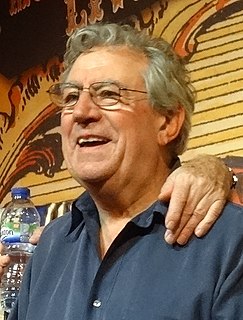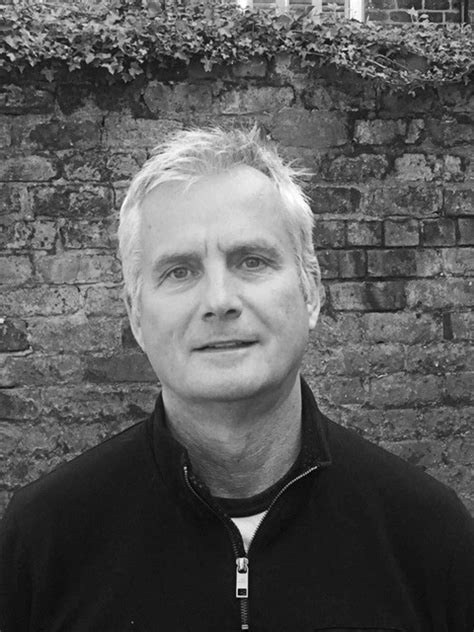Top 531 Historians Quotes & Sayings - Page 9
Explore popular Historians quotes.
Last updated on April 20, 2025.
Though tax records are generally looked upon as a nuisance, the day may come when historians will realize that tax records tell the real story behind civilized life. How people were taxed, who was taxed, and what was taxed tell more about a society than anything else. Tax habits could be to civilization what sex habits are to personality. They are basic clues to the way a society behaves.
When the nuclear weapons were sent to the racist South African government, where a few million white people subjugated more than 13 million black people, it was so they could use them against the Cuban forces that were defending Angola. These things have not been written down but they need to be told as part of the reality of history which should not be distorted the way the historians connected to the power elite tend to do.
In a few hundred years, when the history of our time will be written from a long-term perspective, it is likely that the most important event historians will see is not technology, not the Internet, not e-commerce. It is an unprecedented change in the human condition. For the first time - literally - substantial and rapidly growing numbers of people have choices. For the first time, they will have to manage themselves. And society is totally unprepared for it.
For me, it is about using everything that is there and using the gaps in the record, figuring out why the gaps might be there. And then when you move on to the level of what historians said, laying the interpretations side by side. You also have to look back at the documents and make your own judgments. What the record says and what people say about it. A novelist can fill the gaps in a way that a biographer cannot.
I may have been prejudiced against lawyer members of Congress, having run against one or two and having been threatened politically by a few others, and also because my own professional background was academic, principally in the liberal arts. Good lawyers, I asserted in campaigns, can be found in the yellow pages of the telephone books. Good historians, or political and social philosophers, are not so easily found or classified.
Ultimately, it comes down to taste. It comes down to trying to expose yourself to the best things that humans have done and then try to bring those things into what you're doing. Picasso had a saying: good artists copy, great artists steal. And we have always been shameless about stealing great ideas, and I think part of what made the Macintosh great was that the people working on it were musicians and poets and artists and zoologists and historians who also happened to be the best computer scientists in the world.
I learned early on that war forms its own culture. The rush of battle is a potent and often lethal addiction, for war is a drug, one I ingested for many years. It is peddled by mythmakers- historians, war correspondents, filmmakers, novelists, and the state- all of whom endow it with qualities it often does possess: excitement, exoticism, power, chances to rise above our small stations in life, and a bizarre and fantastic universe that has a grotesque and dark beauty.
A delusion that encourages belief where there is no evidence is asking for trouble. Disagreements between incompatible beliefs cannot be settled by reasoned argument because reasoned argument is drummed out of those trained in religion from the cradle. Instead, disagreements are settled by other means which, in extreme cases, inevitably become violent. Scientists disagree among themselves but they never fight over their disagreements. They argue about evidence or go out and seek new evidence. Much the same is true of philosophers, historians and literary critics.
Historians constantly rewrite history, reinterpreting (reorganizing) the records of the past. So, too, when the brain's coherent responses become part of a memory, they are organized anew as part of the structure of consciousness. What makes them memories is that they become part of that structure and thus form part of the sense of self; my sense of self derives from a certainty that my experiences refer back to me, the individual who is having them. Hence the sense of the past, of history, of memory, is in part the creation of the self.
[Camillo] Berneri proposed that the anarchists should link up with the effort of Northern Africa to overthrow the Spanish government, carry out land reform, attract the base of the Moorish army, and see if they could undermine [Francisco] Franco's army through political warfare in Northern Africa combined with guerrilla warfare in Spain. Historians laughed at that, but I don't think they should have. This was the kind of war that might have succeeded in stopping Spanish fascism.
The gods have fled, I know. My sense is the gods have always been essentially absent. I do not believe human beings have played games or sports from the beginning merely to summon or to please or to appease the gods. If anthropologists and historians believe that, it is because they believe whatever they have been able to recover about what humankind told the gods humankind was doing. I believe we have played games, and watched games, to imitate the gods, to become godlike in our worship of eachother and, through those moments of transmutation, to know for an instant what the gods know.
In contrast, Western historians, and those in South Korea, say the North attacked the South on June 25, 1950. Both sides agree that after the war began, the North Korean Army captured Seoul in three days and pushed as far south as Pusan before American troops arrived to drive back the North Koreans nearly as far north as the border to China.
Environmental historians . . . insist that we have got to go . . . down to the earth itself as an agent and presence in history. Here we will discover even more fundamental forces at work over time. And to appreciate those forces we must now and then get out of parliamentary chambers, out of birthing rooms and factories, get out of doors altogether, and ramble into fields, woods, and the open air. It is time we bought a good set of walking shoes, and we cannot avoid getting some mud on them.
Historians will come to their own judgments about President Kennedy. Here is how I choose to remember him. He was an heir to wealth who felt the anguish of the poor. He was an orator of excellence who spoke for the voiceless. He was a son of Harvard who reached out to the sons and daughters of Appalachia. He was a man of special grace who had a special care for the retarded and handicapped. He was a hero of war who fought hardest for peace. He said and proved in word and deed that one man can make a difference.
Maya Jasanoff's Liberty's Exiles places the loyalist experience and the aftermath of the American Revolution in an entirely new light. Alongside the Spirit of 1776, Jasanoff gives us the Spirit of 1783, dedicated to remaking the mighty British Empire, and then offers a stunning reinterpretation of the Loyalists' complicated role in that remaking. Her meticulously researched and superbly written account is historical revision at its finest, and it affirms her place as one of the very finest historians of the rising generation.
The selection process has been powerful enough to produce one indisputable outcome: the family is a universal human institution. . . . In virtually every society into which historians or anthropologists have inquired, one finds people living together on the basis of kinship ties and having responsibility for raising children. . . . Even in societies where men and women have relatively unrestricted sexual access to one another beginning at an early age, marriage is still the basis for family formation. It is desired by the partners and expected by society.
I think a bigger difference with social media is going to be things like the impact Instagram will have for historians. For the longest time, we had no images of the past. And then when we had the advent of the camera, we had a record of the things people chose to photograph, which, for a while, were portraits of your family, a new building we built, or a really big horse. Well now we have images of everything. That will be the biggest difference I think - that we will have a visual record of this reality in a way that will be completely covered.
Whether I like it or not, most of my images of what various historical periods feel, smell, or sound like were acquired well before I set foot in any history class. They came from Margaret Mitchell, from Anya Seton, from M.M. Kaye, and a host of other authors, in their crackly plastic library bindings. Whether historians acknowledge it or not, scholarly history’s illegitimate cousin, the historical novel, plays a profound role in shaping widely held conceptions of historical realities.
When I meet a historian who cannot think that there have been great men, great men moreover in politics, I feel myself in the presence of a bad historian, and there are times when I incline to judge all historians by their opinion of Winston Churchill -- whether they can see that, no matter how much better the details, often damaging, of man and career become known, he still remains quite simply, a great man.
A number of aspects of mathematics are not much talked about in contemporary histories of mathematics. We have in mind business and commerce, war, number mysticism, astrology, and religion. In some instances, writers, hoping to assert for mathematics a noble parentage and a pure scientific experience, have turned away their eyes. Histories have been eager to put the case for science, but the Handmaiden of the Sciences has lived a far more raffish and interesting life than her historians allow.
I don't know that there has ever been a time when Abraham Lincoln didn't stand head-and-shoulders above all other presidents in the historians' eye. But relatively speaking, there have been peaks and a troughs. One peak was in the 1910s-20s; a major trough was in the 1970s-80s. We are certainly on a peak again, something which began in 1994 with Michael Burlingame's 'The Inner World of Abraham Lincoln,' which showed in fabulous detail how many new and untapped sources were available on Lincoln.
Historians will look back on this era and how the Internet changed what we value, what we consider art, the way we think, the way we define what it means to be human. In Sincerity and Authenticity, Lionel Trilling describes the changes that occurred between about 1850 and 1920, due to the Industrial Revolution and the resulting migration of people from small communities to relative anonymity in cities. Because of that paradigm shift, ideas about what it means to be an individual underwent a transformation that leeched into all areas. Art, psychology, history, marriage, gender.
I do not know how Vladimir Putin will be esteemed by the future history, but I have no doubt that among his successes and advantages for Russia historians shall absolutely note the fact of his not altering the constitution, for he created a precedent. And afterwards, no matter who might become president, it shall be extremely difficult to alter the constitution exactly on that point. Extremely difficult.
Everyone knows history is written by the winners, but that cliche misses a crucial detail: Over time, the winners are always the progressives. Conservatism can only win in the short term, because society cannot stop evolving (and social evolution inevitably dovetails with the agenda of those who see change as an abstract positive). It might take seventy years, but it always happens eventually. Serious historians are, almost without exception, self-styled progressives. Radical views--even the awful ones--improve with age.
Whole great chunks of written history are of little value to the psychohistorian, while other vast areas which have been much neglected by historians - childhood history, content analysis of historical imagery, and so on - suddenly expand from the periphery to the center of the psychohistorian's conceptual world, simply because his or her own new questions require material nowhere to be found in history books.
Why do I feel so exercised about what we think of the people of the Middle Ages? ... I guess it's because so many of their voices are ringing vibrantly in my ears - Chaucer's, Boccaccio's, Henry Knighton's, Thomas Walsingham's. Froissart's, Jean Creton's... writers and contemporary historians of the period who seem to me just as individual, just as alive as we are today. We need to get to know these folk better in order to know who we are ourselves.
Poets, if they're genuine, must keep repeating "I don't know." Each poem marks an effort to answer this statement, but as soon as the final period hits the page, the poet begins to hesitate, starts to realize that this particular answer was pure makeshift that's absolutely inadequate to boot. So the poets keep on trying, and sooner or later the consecutive results of their self-dissatisfaction are clipped together with a giant paperclip by literary historians and called their oeuvre.
Her nomination for vice president in 2008 represents the most desperate inclinations of the Republican Party. In two hundred years, I suspect historians will use Palin as an example of how insane America became in the decade following the destruction of the World Trade Center, and her origin story will seem as extraterrestrial and eccentric as Abe Lincoln jumping out of a window to undermine a voting quorum in 1840.
But, historians, and even common sense, may inform us, that, however specious these ideas of perfect equality may seem, they are really, at bottom, impracticable; and were they not so, would be extremely pernicious to human society. Render possessions ever so equal, men's different degrees of art, care, and industry will immediately break that equality. Or if you check these virtues, you reduce society to the most extreme indigence; and instead of preventing want and beggary in a few, render it unavoidable to the whole community.
In the firm expectation that when London shall be a habitation of bitterns, when St. Paul and Westminster Abbey shall stand shapeless and nameless ruins in the midst of an unpeopled marsh, when the piers of Waterloo Bridge shall become the nuclei of islets of reeds and osiers, and cast the jagged shadows of their broken arches on the solitary stream, some Transatlantic commentator will be weighing in the scales of some new and now unimagined system of criticism the respective merits of the Bells and the Fudges and their historians.
I think certain periods of history don't get dealt with because I think historians, and it's their job, but they look back and look for patterns. They look for sequences and they look for reasons, and certain periods of history don't fit with the general pattern of 1500 to the 20th century, during which there's the creation of the United States. At this time of 1814, two nations who would eventually become close allies were at war with each other, so it doesn't quite fit.
Human beings are many-layered creatures, and do not succumb to the hegemony of others as easily as historians and politicians sometimes imply. Those Welsh, Scottish and Anglo-Irish individuals who became part of the British Establishment in this period did not in the main sell out in the sense of becoming Anglicised look-alikes. Instead, they became British in a new and intensely profitable fashion, while remaining in their own minds and behavior Welsh, or Scottish, or Irish aswell.
We comfort ourselves by reliving memories of protection. Something closed must retain our memories, while leaving them their original value as images. Memories of the outside world will never have the same tonality as those of home and, by recalling these memories, we add to our store of dreams; we are never real historians, but always near poets, and our emotion is perhaps nothing but an expression of a poetry that was lost.
Spare me therefore, your good intentions, your inner sensitivities, your unarticulated and unexpressed love. And spare me also these tedious psycho-historians which, by exposing the goodness inside the bad man, and the evil in the good-invariably establish a vulgar and perverse egalitarianism, as if the arrangement of what is outside and what inside makes no moral difference.
For if I should not believe all that is written by Historians, of the glorious acts of Alexander, or Caesar; I do not think the Ghost of Alexander, or Caesar, had any just cause to be offended; or any body else, but the Historian. If Livy say the Gods made once a Cow speak, and we believe it not; we distrust not God therein, but Livy. So that it is evident, that whatsoever we believe, upon no other reason, then what is drawn from authority of men only, and their writings; whether they be sent from God or not, is Faith in men only.
There is that great proverb - that until the lions have their own historians, the history of the hunt will always glorify the hunter. That did not come to me until much later. Once I realized that, I had to be a writer. I had to be that historian. It's not one man's job. It's not one person's job. But it is something we have to do, so that the story of the hunt will also reflect the agony, the travail - the bravery, even, of the lions.
I am seized with an abiding fear regarding what these two instruments are doing to our society, our culture and our heritage. Our history will be what we make it. And if there are any historians about fifty or a hundred years from now, and there should be preserved the kinescopes for one week of all three networks, they will there find recorded in black and white, or color, evidence of decadence, escapism and insulation from the realities of the world in which we live.
The community itself didn't support the union. Now that's kind of interesting about [Barack] Obama, because Obama was supposedly a community organizer in Chicago at that time. Now I'm sure he read the Chicago Tribune, so he knew about it, but when he went to show his solidarity with the workforce, the first place he went was Caterpillar. I don't think he's forgotten, and the labor movement didn't react. Even radical labor historians didn't remember. It was only 15 years ago, after all, but that's a real triumph of propaganda in many ways.
The wisest thing in the world is to cry out before you are hurt. It is no good to cry out after you are hurt; especially after you are mortally hurt. People talk about the impatience of the populace; but sound historians know that most tyrannies have been possible because men moved too late. it is often essential to resist a tyranny before it exists.
I believe that all novels, ... deal with character, and that it is to express character – not to preach doctrines, sing songs, or celebrate the glories of the British Empire, that the form of the novel, so clumsy, verbose, and undramatic, so rich, elastic, and alive, has been evolved ... The great novelists have brought us to see whatever they wish us to see through some character. Otherwise they would not be novelists, but poet, historians, or pamphleteers.
You know, I am not a particular Kennedy apologist or an awed fan - I was 12 when he was murdered - but I have discussed Kennedy with historians. For his incredibly short tenure, he was a very important president. Many put him in the second tier, below the big three and surrounded by Truman and Eisenhower. Kennedy moved our soul. Changed our thinking about service and governance. And won big in the greatest nuclear crisis of the Cold War.
Concerned to reconstruct past ideas, historians must approach the generation that held them as the anthropologist approaches an alien culture. They must, that is, be prepared at the start to find that natives speak a different language and map experience into different categories from those they themselves bring from home. And they must take as their object the discovery of those categories and the assimilation of the corresponding language.
I think there's no question that historians create; they would tell you that, I think. If I'm trying to imagine an imperial Roman position, it's much easier to imagine the poor schlub who's not even sure why he's doing what he's doing than it is to imagine Caesar. At least for me. And I'm intrigued, too, by the position of the poor schlub who *still* finds himself supporting the imperial project.
There are some historians who say that democratic republics dont last more than 200 years. Well, weve got to show that you can last more than 200 years. Weve got to continue to sustain the system, and the only way you can do it is by sustaining the constitution and by confronting lies face to face, head on, aggressively.
As historians, we refuse to allow ourselves these vain speculations which turn on possibilities that, in order to be reduced to actuality, suppose an overturning of the Universe, in which our globe, like a speck of abandoned matter, escapes our vision and is no longer an object worthy of our regard. In order to fix our vision, it is necessary to take it such as it is, to observe well all parts of it, and by indications infer from the present to the past.
What historians will definitely wonder about in future centuries is how deeply flawed logic, obscured by shrewd and unrelenting propaganda, actually enabled a coalition of powerful special interests to convince nearly everyone in the world that CO2 from human industry was a dangerous, planet-destroying toxin. It will be remembered as the greatest mass delusion in the history of the world - that CO2, the life of plants, was considered for a time to be a deadly poison.
When historians get to write the truth about this completely unnecessary referendum [Brexit] they won't say it was a vote demanded by the British people to decide their national destiny. They will say it was the final battle in a decades-long Tory Civil War, at the heart of which was a fight to the death between two Old Etonians, David Cameron and Boris Johnson, for the hollow crown. A sort of Eton Wall Game. Where the poorest are put up against the wall and shot.
Every man should write a brief history of his life: his parentage, his birth, his religion, when he was baptized and by whom, when ordained, what to, and by whom-give a brief sketch of all his missions and of all his official acts and the dealings of God with him. Then if he were to die and the historians wished to publish his history, they would have something to go by.
To seek in the great accumulation of the already-said the text that resembles "in advance" a later text, to ransack history in order to rediscover the play of anticipations or echoes, to go right back to the first seeds or to go forward to the last traces, to reveal in a work its fidelity to tradition or its irreducible uniqueness, to raise or lower its stock of originality, to say that the Port -Royal grammarians invented nothing, or to discover that Cuvier had more predecessors than one thought, these are harmless enough amusements for historians who refuse to grow up.
To describe love-making is immoral and immodest; you know it is. To describe it as it really is, or would appear to you and me as lookers-on, would be to describe the most dreary farce, to chronicle the most tautological twaddle. To take note of sighs, hand-squeezes, looks at the moon, and so forth--does this business become our dignity as historians? Come away from those foolish young people--they don't want us; and dreary as their farce is, and tautological as their twaddle, you may be sure it amuses them, and that they are happy enough without us.
If you have things or are involved with things that turn on, it's going to have code. And there are so many people - let's pick on the historians - even as a historian, let's say I ended up going the road of being a historian, just knowing some basic scripts, any kind of automation would have made me a 10 times better historian because I wouldn't have to sit there changing every file name to "1234" and then "12345." It can have a transformative value.
